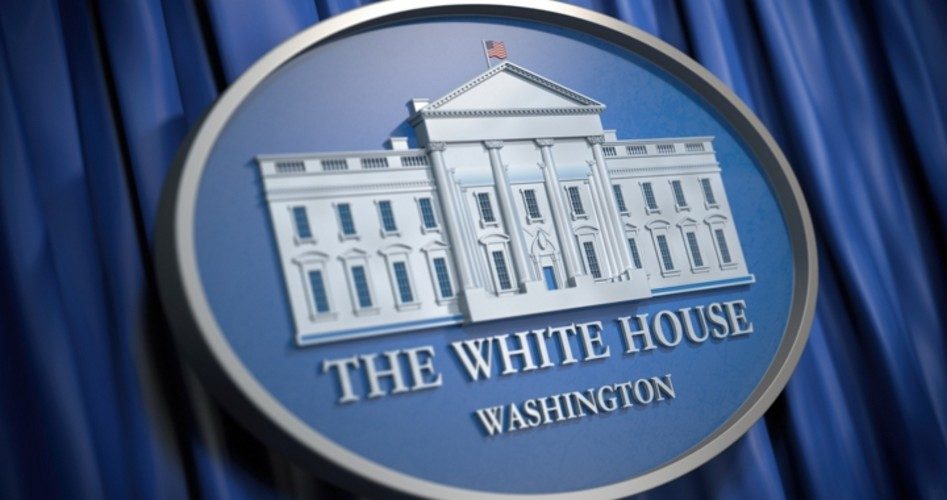
It’s highly unlikely that Harvard-trained economist Justin Wolfers has ever been to Caracas, Venezuela. It’s also unlikely that he took the time to read the 72-page report “The Opportunity Costs of Socialism” issued by President Trump’s Council of Economic Advisers (CEA) explaining the dangers in enacting Bernie Sanders’ socialist healthcare takeover called “Medicare for All.” But he has an opinion, nevertheless: he called it “dreck” in his tweet: “For several generations the CEA harnessed the best and brightest to serve their country, ensuring White House policy was informed by modern [i.e., Keynesian] economic thinking. It’s sad to see [the present Trump CEA] debase that tradition, spending their time on this dreck.”
Merriam-Webster offers various synonyms for “dreck,” including chaff, deadwood, debris, dross, dust, garbage, junk, litter, offal, refuse, riffraff, rubbish, scrap, trash, truck, and waste. In other words, Wolfer doesn’t think much of the CEA’s effort.
On the other hand, “If our study,” said CEA chairman Kevin Hassett, “convinces people of all parties that if they rely on central planning and try to reduce the influence of private property by either specifically nationalizing things or regulating or taxing things into oblivion, that that would be bad for the economy, I would feel that the paper had accomplished its objectives.”
The paper is a rebuttal to “Medicare for All” already being supported by 123 Democrats in the House and 15 Democrats in the Senate who have cosponsored its legislation.
But socialized medicine is just part of the problem. Once the idea is accepted that government should run healthcare, what’s to keep government from running (and ruining) everything else, just as in Venezuela?
The president referred to that sad and declining country in his fact sheet issued after the CEA report was published, saying that “replacing United States policies with highly socialist ones, like in Venezuela, would reduce real Gross Domestic Product (GDP) by at least 40 percent in the long run.… Venezuela’s socialist experiment has been a complete failure.”
Added Trump, “Today, Venezuelans are beset by out-of-control inflation, lack of basic resources, and rampant crime, starvation and death.” He failed to mention additional facts reported by The New American, which include the 2.3 million Venezuelans, more than half of them suffering from malnutrition, who have already left their country, the long lines that are typical of a country controlled by a government imposing price controls, and the closing of 40 percent of the country’s businesses, thanks to those price controls and runaway inflation.
In “The Opportunity Costs of Socialism,” Hassett and his team point out that the theory of socialism comes from Karl Marx, noting that it was 200 years ago that Marx arrived on scene. Hassett remarked,
We find that historical proponents of socialist policies and those in the contemporary United States share some of [Marx’s] visions and intents. They both characterize the distribution of income in market economies as the unjust result of “exploitation,” which should be rectified by extensive state control.
The proposed solutions include single-payer systems, high tax rates (“from each according to his ability”), and public policies that hand out much of the Nation’s goods and services “free” of charge (“to each according to his needs.”) ….
Socialist policies … provide little material incentive for production and innovation and, by distributing goods and services for “free,” prevent prices from revealing economically important information about costs and consumer needs and wants.
To this end, as the then-prime minister of the United Kingdom, Margaret Thatcher (1976), once argued, “Socialist governments .. always run out of other people’s money”….
Industrialized countries [adopting socialism] as is currently the case in Venezuela … produce less rather than more.
It didn’t happen by accident, but by deliberate intentional actions by popular socialist politicians offering solutions to perceived “problems” of capitalism:
In 1999, “Hugo Chávez convinced the people of Venezuela they were being robbed by the greedy oil companies, dramatically raised taxes and royalties on new and existing projects….
The state-owned oil entity [soon] no longer possessed the know-how to develop its resources and production began declining” (Oil Sands Magazine 2016). Oil revenues were spent on generous social programs rather than investing in the country’s oil production capacity or cutting taxes (Economist 2017; Monaldi 2018).
The authors explained in a footnote that “Under Hugo Chávez, the Venezuelan government ‘constructed a free healthcare program for people living in poor and marginalized areas,’ largely by importing about 31,000 medical personnel from [communist] Cuba.”
The destructiveness of socialism, at its core, is its deliberate and intentional destruction of the price system and the incentive to produce at a profit. Wrote the authors:
The Venezuelan economy does not benefit from price signals the way that less-regulated economies do. High inflation, which is expected to reach 1 million percent per year in 2018, makes it difficult to discern relative prices (Fischer, Hall, and Taylor 1981).
Even without inflation, many prices are not determined by the market. In Venezuela, the 2011 Law of Fair Costs and Prices gives the Superintendent of Fair Costs and Prices (known as SUNDECOP) “broad authority to regulate the prices of almost all goods and services sold to the public,” deciding “whether prices are ‘fair’ and to identify businesses that make ‘excessive profits through speculation’” (USTR 2013). “Basic goods like flour and aspirin had fixed prices and were so cheap that companies had no incentive to make them” (Kurmanaev 2018).
As George Santayana said, “Those who cannot remember the past are condemned to repeat it.” According to a Gallup poll taken in August, millennials coming out of government schools viewed socialism more favorably than capitalism for the first time since the pollster started asking the question in 2010.
But Justin Wolfers called the study “dreck.” If he ever decides to visit the socialist paradise called Venezuela, he would do well to take with him some of those millennials who also don’t know and therefore cannot remember their history.
Image: Bet_Noire via iStock / Getty Images Plus
An Ivy League graduate and former investment advisor, Bob is a regular contributor to The New American magazine and blogs frequently at LightFromTheRight.com, primarily on economics and politics. He can be reached at [email protected].
Related articles:



